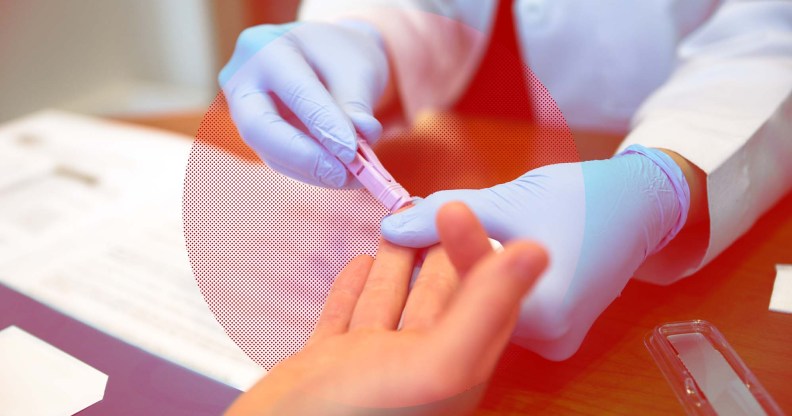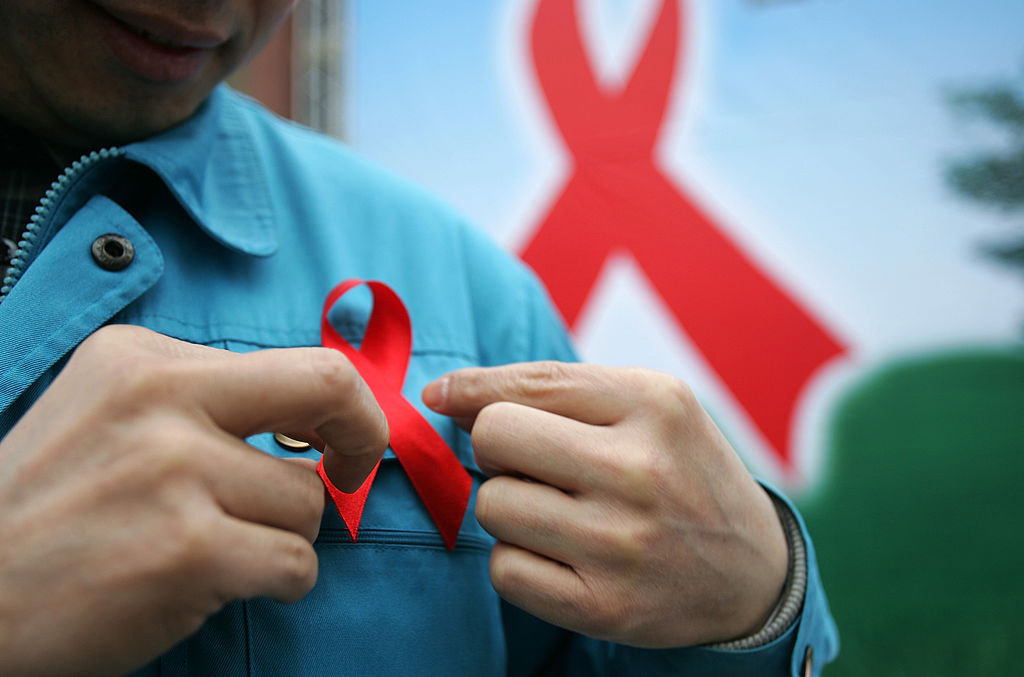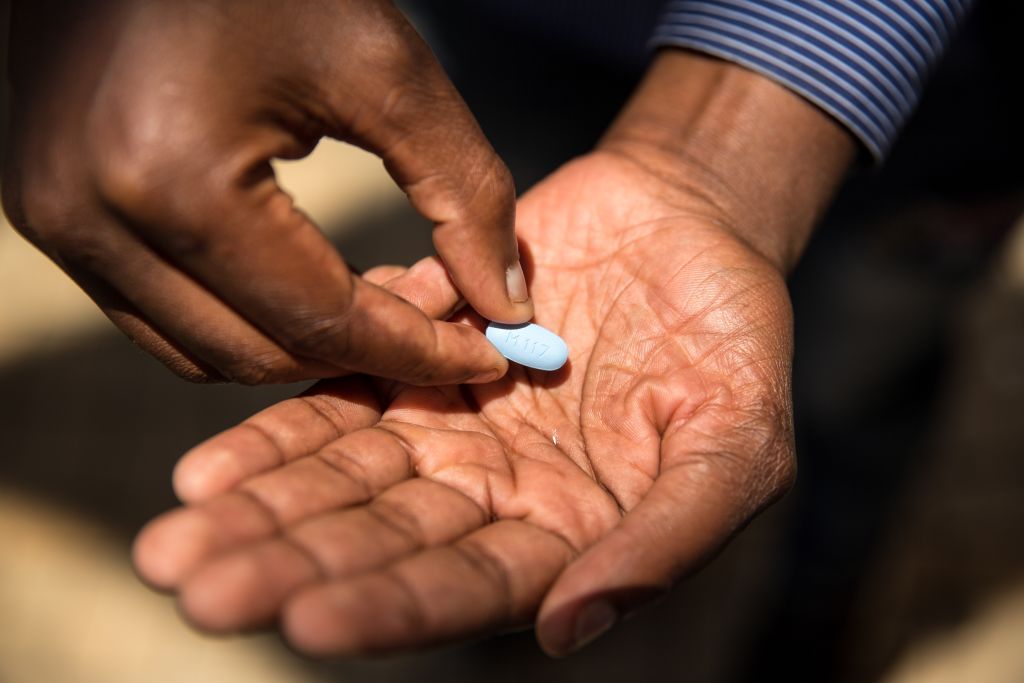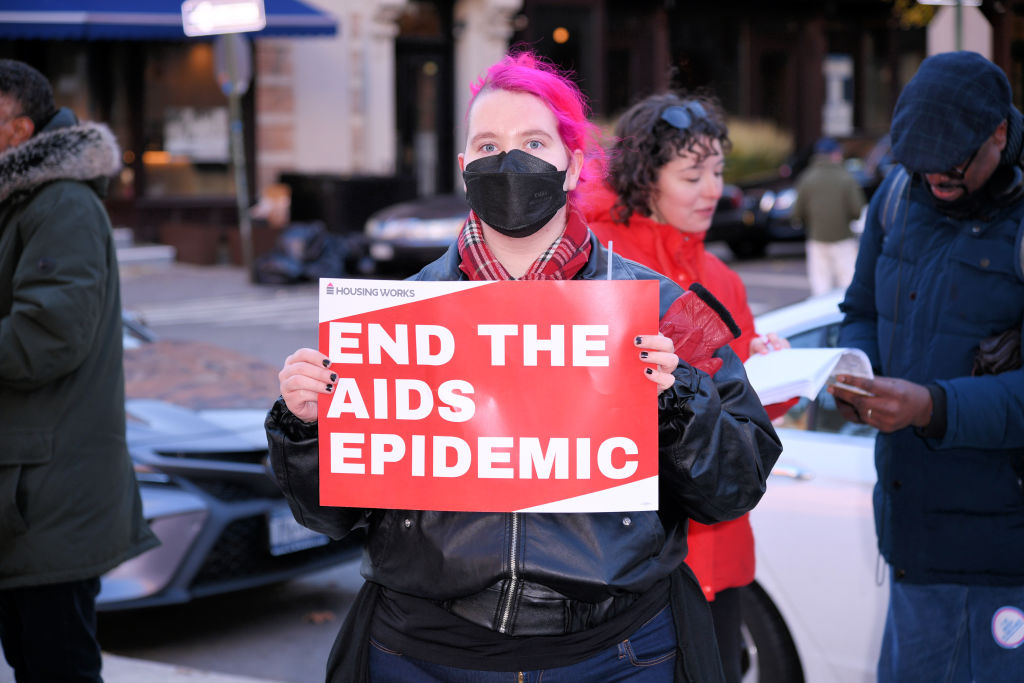HIV Testing Week: Sexual health services ‘hanging on by their fingernails’ after mpox outbreak

A person takes a blood sample for a HIV test. (Getty)
HIV and sexual health services are “woefully underfunded” and it’s long past time the government took notice.
As HIV Testing Week gets underway, those working in the area are grappling with a lack of resources and the continued fallout of the mpox (formerally known as monkeypox) epidemic.
The sector responded to that outbreak without any additional funding, meaning routine work was pushed back. The epidemic is now under control in the UK, but sexual health services are still dealing with backlogs.
Deborah Gold, the chief executive of the National Aids Trust, says funding has been shrinking for years.
“The problem is this: the over all HIV and sexual health system is enormously and woefully underfunded,” Gold tells PinkNews.
“What many people don’t realise is that sexual health clinics are not funded through NHS [money], they’re funded by the grant that goes to local authorities or to your local council.”

That money has been cut and cut, she adds, leaving the sector “in dire straits, just hanging on by its fingernails”.
Those working in the sector are “absolutely heroic” and are trying to keep services going, but mpox demonstrated that the system can’t cope with a shock.
“When mpox happened sexual health clinics quickly moved into crisis mode to deal with diagnosing people, getting the vaccine out as quickly as they could, but they were not given any additional resources to manage that,” Gold says.
“What ended up happening was they had to divert services and capacity away from sexual health services and HIV, so it became harder to get an appointment to get pre-exposure prophylaxis (PrEP), it became harder to get an appointment for sexual health testing or treatments.
“There’s an absolutely urgent need for the government to find a way to put right the fact that we still have enormous backlogs as a result of the mpox epidemic.”
Opt-out HIV testing is the way forward
Gold is now calling on the government to expand opt-out testing in emergency departments to ensure more people are accessing treatment.

The government is currently funding opt-out testing, where everybody who gives a blood sample in 33 emergency departments is automatically screened for HIV, in extremely high HIV prevalence areas. Many in the sector now want it rolled out nationwide.
“It’s been hugely successful in identifying people who are living with HIV and may not have realised it and may never have even asked for a test,” Gold says.
“It also identifies people who may have already known they had HIV but for various reasons have fallen out of touch with care.”
Gold also wants to see additional funding introduced to help sexual health services reach those who are less inclined to get tested.
Getting more people on treatment early would prevent them from passing the virus on.
“There are fantastic campaigns like HIV Testing Week that reach huge numbers of people but more could be done with more money and more targeted campaigns,” she says.
Increasing funding is also important for public health, says Takudzwa Mukiwa, from the Terrence Higgins Trust.

Mukiwa points out that heterosexuals and people from Black African communities are likely to be diagnosed later than gay and bisexual men. There’s work to be done to ensure everyone knows they can access free testing, and that they can even take a rapid test at home.
“People are busy, they struggle to get the time to set aside to actually get tested, that’s why we’re trying to emphasise the message that you can do it in your own time and it will be quick,” Mukiwa says.
There are also specific challenges facing migrants who might not speak English as a first language. Some might not realise that they could access HIV treatment free on the NHS if they received a diagnosis.
“It’s quite important for us to address inequalities so we can help migrants navigate the health system and know what they’re eligible for and what they’re not eligible for,” Mukiwa says.

